Freight Farms allows crops to be grown inside shipping containers
Freight Farms, a startup that has found a way to grow crops inside shipping containers, features in the latest video in our Dezeen x MINI Living series.
The organisation has developed a hydroponic farming system called The Leafy Green Machine. It uses this hi-tech growing technology to transform discarded freight vessels into mobile farm units.
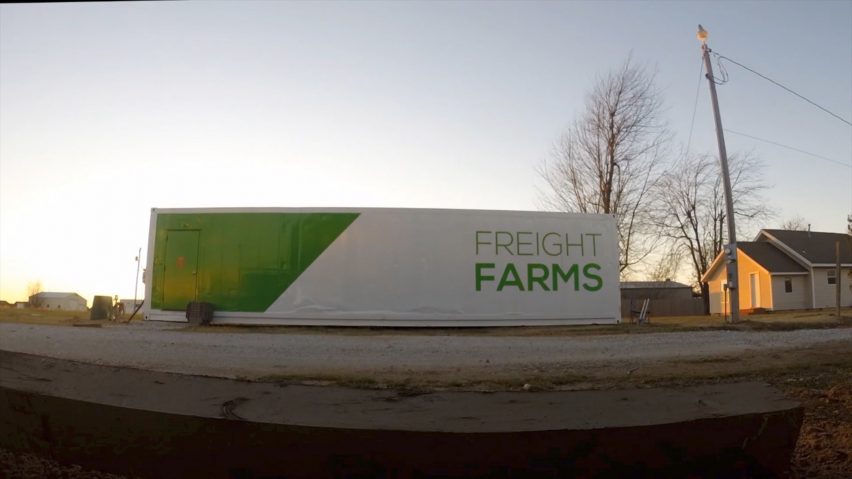
Each farm occupies 320 square metres of space, but Freight Farms claims that each one can produce as much food as a two-acre plot of land.
Inside, seeds are planted in trays and exposed to LED grow lights until they sprout. The seedlings are then transplanted into vertical hydroponic planters, and fed nutrient-rich water from ceiling spigots that flow into artificial root systems.
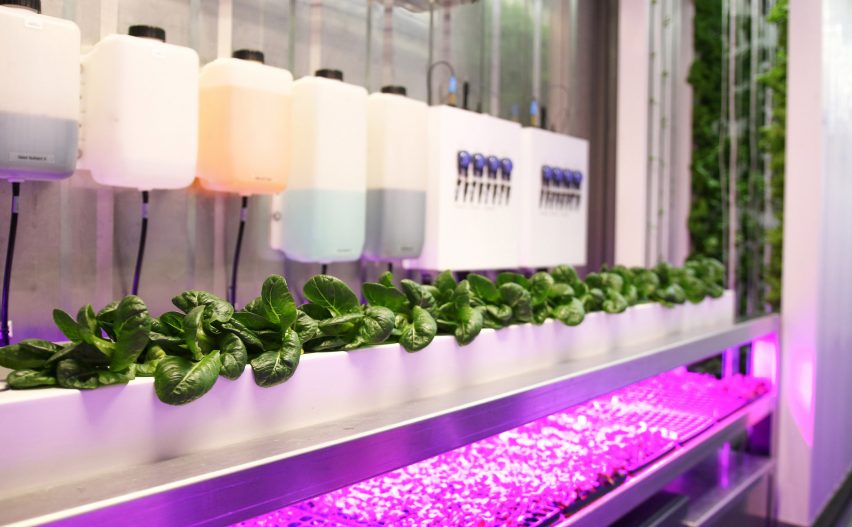
In order to monitor and manage conditions inside the farm, Freight Farms has produced a smartphone app called Farmhand. Lighting, temperature, humidity and carbon dioxide levels inside the farm can be controlled remotely using this app.
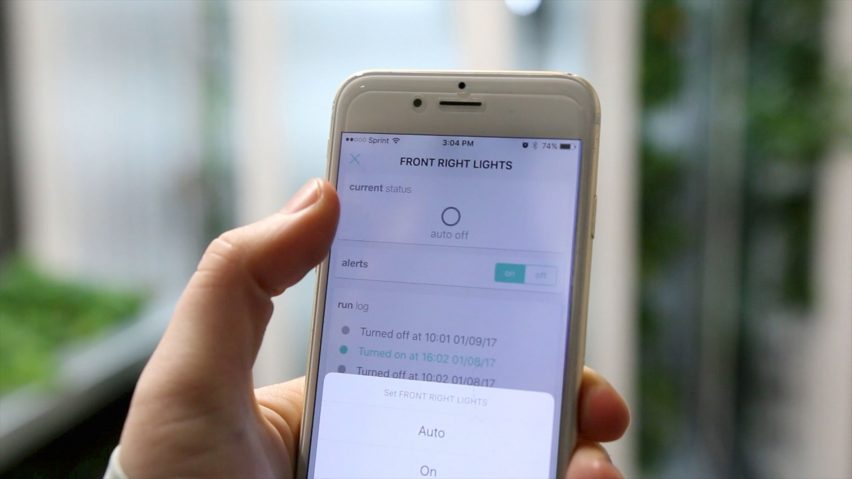
This technology-based approach towards food production is known as controlled-environment agriculture (CEA). The benefit of this approach it that isn't affected by climatic and seasonal factors – one of the biggest limitations on traditional farming.
Freight Farms claims that its system enables food to be produced throughout the year in any location, as the outdoor climate has no impact on the conditions inside the shipping container.
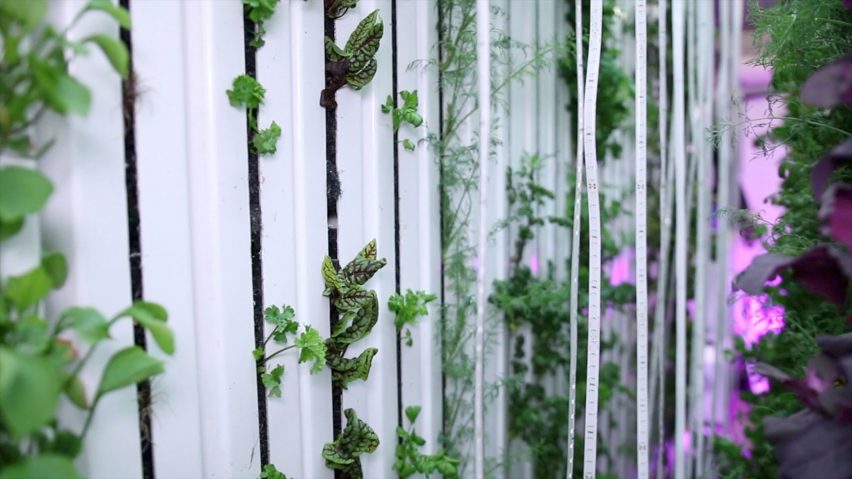
The project taps into the growing trend for urban farming, which has seen an influx of investment and innovation in recent years, and is set to continue, as the proportion of people living in cities is growing exponentially.
According to Freight Farms, CEA systems could become commonplace in urban areas. City farmers would be able to expect plentiful harvests from a year-round growing-season, which would benefit urban communities lacking access to fresh local produce.
Freight Farms also claims that its fusion of technology with vertical farming has the ability to reduce the ecological footprint of food production, as its farms are able to produce food on a considerably smaller plot than is required by traditional crops.
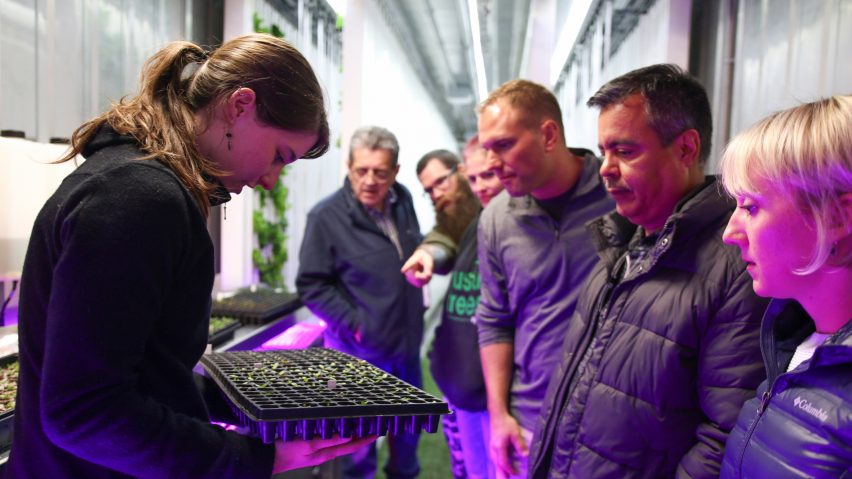
Some restaurants, like B Good in Boston, have already installed Leafy Green Machines on-site, giving them immediate access to fresh and inexpensive produce.
Meanwhile, NASA has offered a grant to Freight Farms and Clemson University to develop off-the-grid farming systems using renewable energy, so that the space agency would eventually be able to adapt the technology to provide life support on Mars.
This movie is part of Dezeen x MINI Living Initiative, a year-long collaboration with MINI exploring how architecture and design can contribute to a brighter urban future through a series of videos and talks.
